THE SORROWS OF YOUNG ALFONSO (Rudolfo Anaya) María Teresa Huerta Velásquez March 2017 In The Sorrows of Young Alfonso, Rudolfo Anaya writes his remembrance of things past, reveals the power of imagination and celebrates the worth of storytelling. He introduces Alfonso, a writer, and an unnamed narrator who recounts Alfonso’s reminiscences of his life. […]
Entries Tagged as 'Non Fiction'
The Sorrows of Young Alfonso
by María Teresa Huerta Velásquez
La vecindad chicana en mi pueblo, Mercedes
by rhinojosa
TO READ THIS POST, PLEASE CLICK ON THE LINK FOR: La vecindad chicana en mi pueblo, Mercedes
Floricanto en Mictlan
by Floricanto en Mictlan
alternaCtive publicaCtions would like to honor contemporary Chicano/a authors who have preceded us in the journey to Mictlan. In the tradition of the Floricantos, we have gathered quotes from their work, book covers, and pictures. May they serve as one way of remembering these writers. We have included in this hommage those who published during […]
Selected Works
by Itzolin García
In Mexico, there are dark places in the midst of the squalor and the pollution where there is no noise, little motion, where one can sit undisturbed. I live in the little village several miles from here. Here is El Toro, a bar or café. What could you call it? The men sitting at the […]
Carta de Tomás Rivera a Aristeo Brito (pulse sobre la fecha de la carta para ver el original en pdf)
by trivera
Estimado Aristeo,
Acabo de regresar de Puebla, Pue. México
donde me pasé la última parte del verano dando
clases de civilización y cultura
Creative Bits
by rhinojosa
NOTE FROM THE PUBLISHER: alternaCtive publicaCtions is proud to offer its visitors the unique opportunity to read Rolando Hinojosa’s earliest preserved writings, published here for the first time. Hinojosa wrote these five short pieces when he was a senior in high school, during the 1945-1946 academic year, two in 1945 and three in 1946. Since […]
La gente de los girasoles
by mcotacardenas
Prefacio:
The principal narrator, Petra Leyva, is intrigued by Sebastián, a young Chicano academic who was born in Mexico but was raised in California. His father abandons him, his mother and other siblings by tricking them after bringing them to California from Mexico to live. His mother and his family work in the flower seed fields for a northern California company, including vast fields of sunflowers. Feeling the absence of his father, in later years he wonders as he is traveling through the streets of Michoacán whether he has passed his own father, half-brothers or sisters without knowing who they were. His cycle also explores being a Chicano gay or lesbian.
Petra elaborates the story of Jesús, a young Chicano activist who worked for the UFW and became close to César, the campesino leader. He and his best friend, Vickie Dee, were American-born, bilingual Chicano activists, who like Petra Leyva, learned about the farm-workers’ struggle and the goals of the Chicano Movement through their involvement with on-campus organizations for Mexican-American youth. Jesús and Vickie Dee differ in that in his case, his family at first did not always support his increasing activism. Vickie Dee, on the other hand, came from a family with grass-roots community involvement. Like Sebastián, Jesús and Vickie Dee are involved in the Chicano civil rights struggle.
More recently, at her sister Belita’s funeral, Petra Levya remembers other deaths of loved ones, including that of the young Jesús, and ponders the need to make several journeys which will ultimately enlighten the role of her own extended family in shaping her life’s direction. For instance, she felt compelled to help her adopted sister, Lupita, find her own Mexican natural family in the rural mountain region of Mexico. She considers that she shared much with these various young people besides the obvious interwined relationships and interests. She also shares with Sebastián a desire to know a mysterious half-brother whom her own father never acknowledged.
Without idealizing the rural campesino experience reflected in the narrators’ stories, the telling of the stories helps bring closure to their search for meaning and inspiration.
Hunting Hemingway (Selections)
by rarias
Hunting Hemingway and Other True Stories [from a book in progress] By Ron Arias Yarima Her name is Yarima, she’s 19 and she’s from the Yanomamo, a jungle tribe in southern Venezuela. Ken Good, the American anthropologist who brought her out of the forest, tells me their story at his parents’ home in Philadelphia. He […]
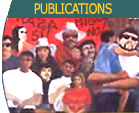
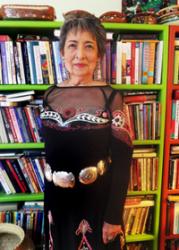
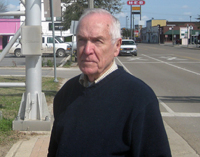
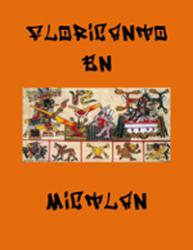
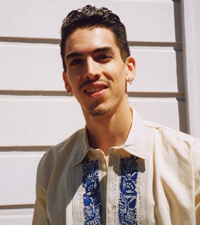
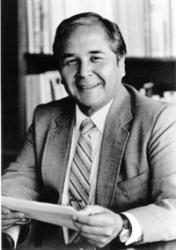


 Site hosted and supported by the UC Merced Library
Site hosted and supported by the UC Merced Library